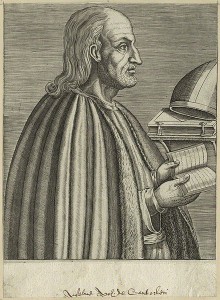About The Ministry’s Namesake

Anselm (1033–1109) was an eleventh century monk and theologian who had a profound impact on Christianity. Despite almost one thousand years since his life and death, his thinking on many subjects remains fresh; speaking to the spiritual issues of our day, particularly the idea of a god or higher power of my understanding. His was a teaching and, in the context of his time, a “biblical counseling” ministry of discipleship where he strove to promote the spiritual and intellectual growth of those who believed as he did in God.
In his book the Proslogion, Anselm put forth a logical argument or proof that God exists as “a supreme good, requiring nothing else, which all things require for their existence and well-being.” He said that even a fool who denied that God existed understood the idea of a being of which nothing greater could be conceived. “And whatever is understood, exists in the understanding.”
If this idea, that God is “a being than which nothing greater can be conceived” existed in the person’s understanding alone, “then it can [also] be conceived to exist in reality; which is greater.” So he concluded there is no doubt that there exists a being “than which nothing greater can be conceived.” And this being, this God, existed both in human understanding and in reality. This was Anselm’s famous ontological argument for the existence of God.
Learn more about Anselm of Canterbury and his teachings
